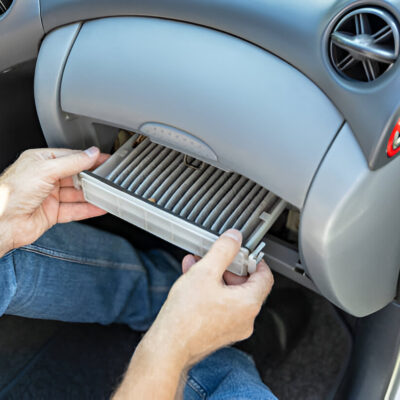When it comes to quality control, precision matters. Whether you’re in the automotive, aerospace, construction, or manufacturing industry, ensuring that materials meet the required specifications can make or break the performance of your product. That’s where a hardness tester steps in as an essential tool in your quality control arsenal.
Let’s talk about why using a hardness tester can be a game-changer for your quality control processes—and why it’s a smart investment for any company operating in or around Toronto, ON, Canada.
Table of Contents
Toggle1. Reliable and Repeatable Results
One of the most important benefits of a hardness tester is its consistency. When you’re testing batches of material, especially metals, polymers, or ceramics, you need a tool that gives repeatable, accurate results every single time. A good hardness tester in Toronto, ON minimizes human error and environmental variables, ensuring that each test is as precise as the last.
This kind of reliability is crucial for maintaining customer trust and meeting international quality standards such as ISO, ASTM, or DIN. When your hardness readings are consistent, you can rest easy knowing that your materials are up to spec.
2. Fast and Efficient Testing
Speed is everything in a production environment. A hardness tester allows you to quickly evaluate material properties, which means you don’t have to slow down your workflow to check for defects or compliance.
With modern digital hardness testers, operators can often get a reading in just a few seconds. Some even feature automated sample loading and digital data logging, cutting down manual work and reducing the possibility of mistakes. Whether you’re doing Rockwell, Brinell, or Vickers testing, having a fast tester on your side can drastically improve turnaround times.
3. Improved Product Quality and Safety
The main goal of quality control is to ensure that your product is safe, functional, and durable. Hardness testing helps you catch flaws before they become serious problems. For example, if a steel component is too soft, it might wear down quickly. If it’s too hard, it could be brittle and prone to cracking.
By regularly testing materials throughout the production cycle, you can maintain tighter control over material characteristics, reducing defects and increasing the overall reliability and safety of the final product.
4. Versatility Across Materials and Industries
Hardness testers are not one-size-fits-all tools—but many are surprisingly versatile. Depending on the model, you can test a wide variety of materials: metals, alloys, plastics, elastomers, ceramics, and even composites.
This flexibility makes hardness testers ideal for industries such as:
-
Automotive – testing engine blocks, brake components, and fasteners.
-
Aerospace – ensuring materials can withstand extreme conditions.
-
Medical device manufacturing – verifying that surgical tools meet hardness requirements.
-
Construction – testing structural steel, concrete, and more.
No matter your industry, there’s a hardness tester designed to meet your specific needs.
5. Cost Savings from Reduced Waste and Rework
Mistakes are expensive. If your materials aren’t tested properly, you could end up with defective products that require costly rework or replacement. Worse yet, subpar materials might make it into the field, leading to warranty claims or even safety recalls.
Hardness testing at critical stages of the manufacturing process allows you to identify nonconforming materials early, before they go further down the production line. This proactive approach reduces scrap, lowers labor costs, and boosts your bottom line.
6. Traceability and Digital Documentation
Modern hardness testers often come with digital interfaces and data management capabilities, making it easier to track test results over time. You can store, export, and analyze data to identify trends, improve processes, and prove compliance with industry regulations.
For companies in Toronto and across Canada that need to meet strict audit or certification standards, having traceable, documented results is not just helpful—it’s essential.
7. Portability for On-Site Inspections
While traditional benchtop models are great for lab environments, portable hardness testers offer incredible convenience for field inspections or large parts that can’t be moved easily. These handheld devices are lightweight, battery-operated, and often come with wireless data transfer features.
If you’re doing quality checks at a job site or across multiple production lines in your facility, a portable tester ensures you’re getting accurate readings wherever you need them.
8. Supports Predictive Maintenance
In some industries, hardness testing can also play a role in predictive maintenance. For example, testing the hardness of machine components over time can help you identify wear patterns and schedule maintenance before parts fail. This minimizes unexpected downtime and extends the life of expensive equipment.
Looking for the Best Hardness Tester in Toronto, ON?
If you’re in Toronto or anywhere in Ontario, investing in a top-tier hardness tester can significantly improve your quality control operations. With so many options available—from bench-mounted Rockwell testers to portable Leeb devices—it’s important to choose a solution that aligns with your specific testing needs.
At York Testing Solutions, we offer a wide range of hardness testers suited for all industries and materials. Whether you’re testing in a lab, a production floor, or on-site in the field, we’ve got a model that fits your budget and application. Plus, we provide expert support, calibration services, and training to ensure you get the most from your investment.
Final Thoughts
Hardness testing isn’t just about measuring resistance—it’s about ensuring quality, safety, and performance. From improving product durability to reducing costly errors, the benefits of using a hardness tester in your quality control process are clear.
And if you’re based in or around Toronto, ON, Canada, partnering with a local provider like York Testing Solutions means you’ll always have support when you need it. Whether you’re upgrading your QC tools or just getting started, a reliable hardness tester is a step toward smarter, more efficient product.


